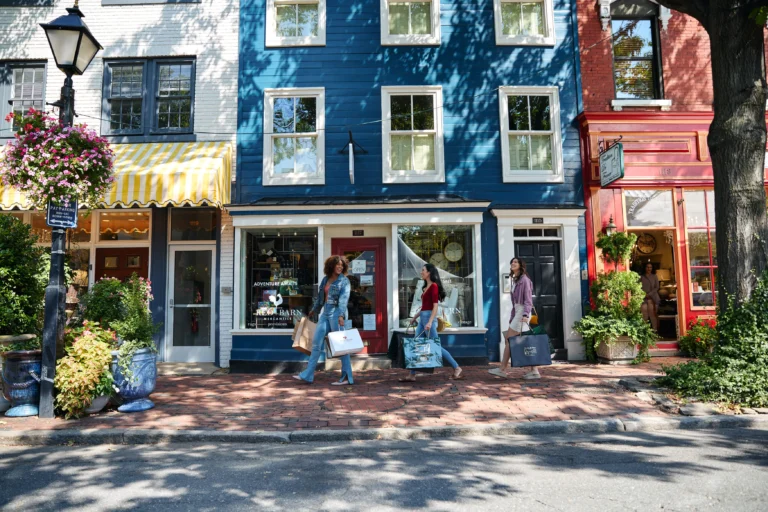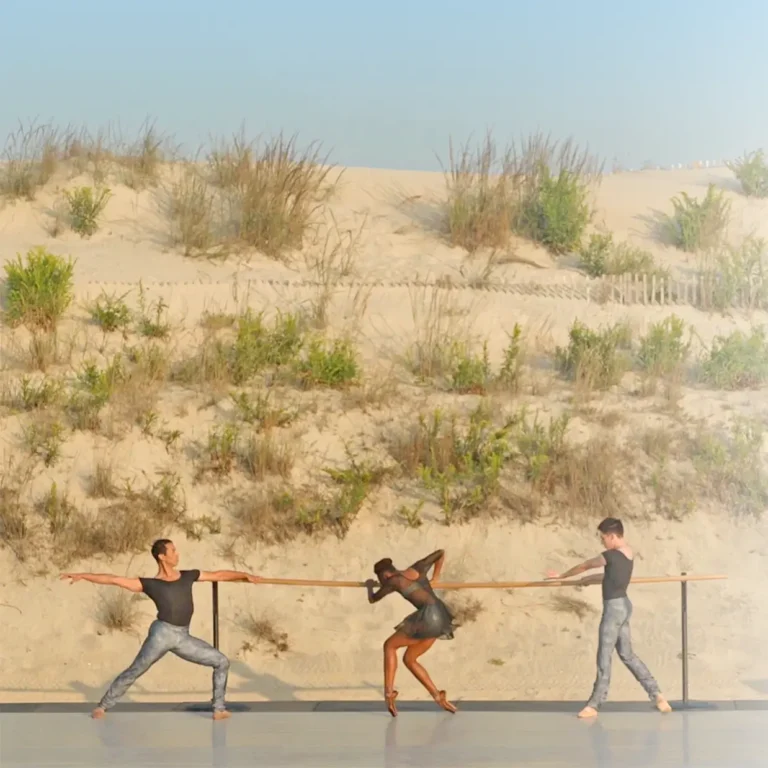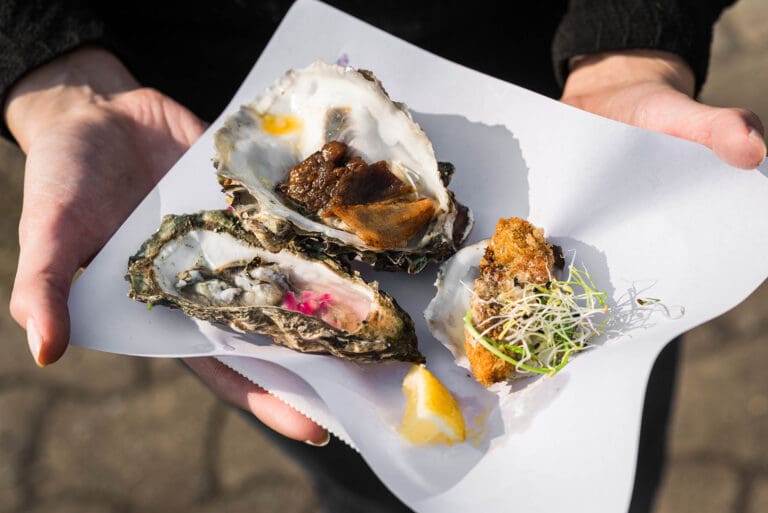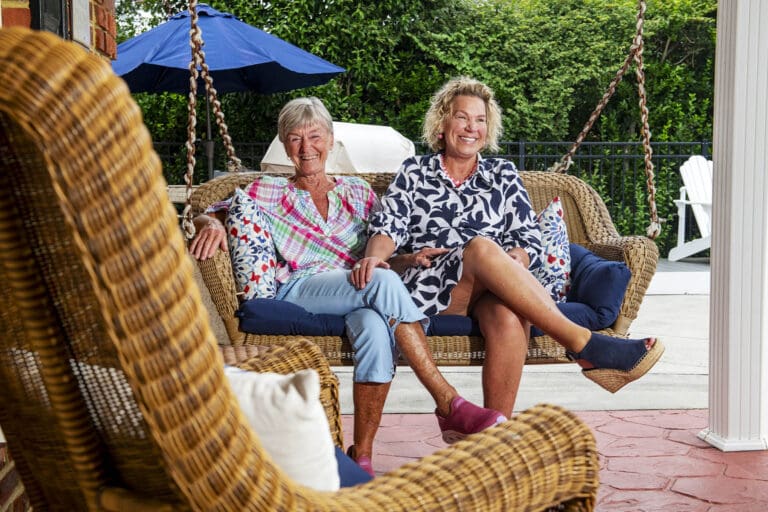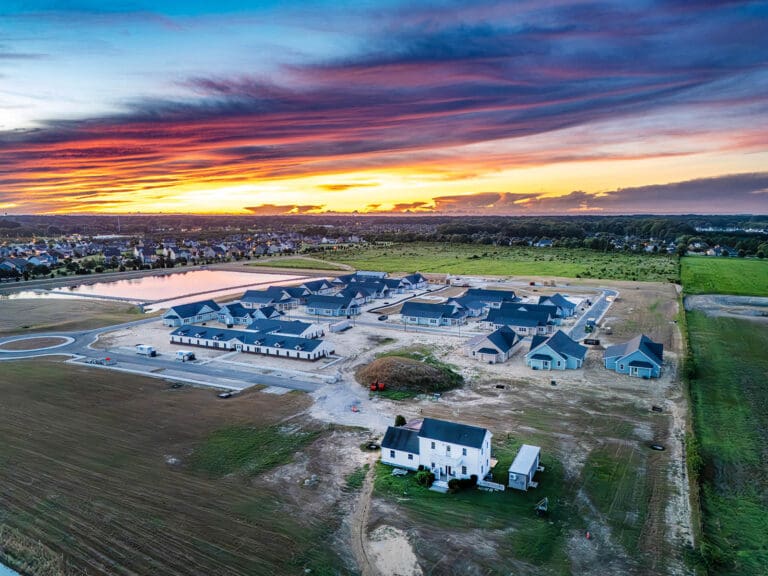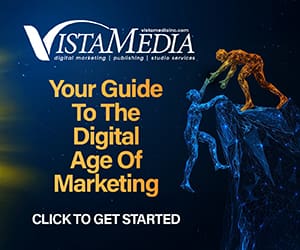For three decades, retiring Elizabeth River Project Executive Director Marjorie Mayfield Jackson has made it her mission to save one of the region’s most storied waterways
By Beth Hester
Leadership takes many forms, but when it comes to making a lasting impact, it’s the blend of vision and heart that sets the most extraordinary leaders apart. In the January-February 2025 issue of CoVaBIZ, Coastal Virginia Magazine’s sister business publication, the feature story honors “Impact Makers” or “Women Leading with Vision & Heart.” The feature celebrates the achievements of women who are shaping the business, creative and entrepreneurial landscape in our region.
Among those women is Marjorie Mayfield Jackson, the environmental advocate, diplomat and force of nature who established the Elizabeth River Project. Jackson quit her job more than three decades ago and made an audacious statement: “I’m going to clean up the River.” The river in question was the Elizabeth River, a tidal estuary and storied body of water so polluted from decades of military and industrial activities, that it was almost entirely devoid of life and given up for dead.
In 1991, The Elizabeth River Project was formed around Jackson’s kitchen table, and since that time the river and the wildlife associated with it have experienced a remarkable recovery. The Ryan Resilience Lab, the River Star Homes initiative, the Dominion Energy Learning Barge, and Paradise Creek Nature Park are also a part of Jackson’s legacy. In 2024, Jackson announced her retirement, but her indefatigable efforts on behalf of the river, and on behalf of all who dwell along her shores is undeniable.
Included here are portions of our recent conversation with Jackson, which is featured in the current issue of CoVa BIZ along with 18 other women impacts makers in Coastal Virginia.
Beth Hester: When you made it your mission to clean up the Elizabeth River, did you realize at the time what an audacious move that was?
Marjorie Mayfield Jackson: We thought of it as almost impossible. That made it the most exciting and inspiring challenge I’d ever taken on. It’s made for the grandest of adventures. I took to heart a quote I read about that time, from the scientist and inventor Buckminster Fuller, something along the lines of, “If you know something the doing of which will better mankind, and the not doing of which will leave the planet worse off, go and do it and pay no attention to earning a living.” I quit my middle-class job, waited tables at night and devoted myself to the doing of this thing.
Building strong partnerships has been a cornerstone of the ERP’s success. What strategies or values guided you in fostering meaningful relationships between parties with that are not necessarily natural allies?
Early on, when we were trying to develop the first ever plan for restoring the Elizabeth, we read a study on what is the difference between a plan that sits on the shelf gathering dust and one that gets implemented. This was 30 years ago and so I can’t quote the source, but what I recall is, it’s not that one plan is any better researched or better presented. It’s whether you sat at the kitchen table of anyone who could oppose it and listened, and at least gained grudging consent.
So at Elizabeth River Project, we have always sought to have at the table those who could oppose whatever we were thinking was best for the river. We have tried hard to listen to their concerns and seek “win-win.” That isn’t the same as a compromise. It means the river gets what it needs and so do the other interests. It requires that you respect what all sides need and adjust the plan to take that into account. So far, I think the river has pretty much always come out well.
When you encounter resistance or setbacks, what strategies or mindsets have proven most effective in moving your vision forward?
I believe every problem has a solution. You talk to enough smart people and you will find it—while also following the philosophy of listening to any who would oppose you to understand and address their needs as best you can. This is different from the traditional environmentalist approach of fighting, suing and assuming a villain.
If you could implement one transformative idea in your field or business, what would it be, and why?
The problem that has most eluded us in our work to restore a healthy Elizabeth is how to rectify the fact that our older cities, Portsmouth and Norfolk, were built with a labyrinth of underground storm drains leading straight to the river with no filtering. Those old, buried drain pipes are the number one source of river pollution today with no practical remedy—you can’t dig them all up, although the cities here and there do what they can. I don’t have a ready solution for that transformative idea, I just wish for it. Rivers in aging urban cities everywhere would be transformed.
Photo at top of page by Eric Luster.









